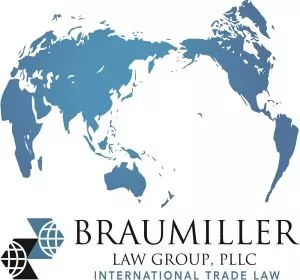- with readers working within the Retail & Leisure industries
- within Corporate/Commercial Law, Energy and Natural Resources and Technology topic(s)
On May 28, 2025, the United States Court of International Trade (CIT) struck down the President's use of the International Emergency Economic Powers Act (IEEPA) to impose tariffs. The decision marks the first judicial rejection of a tariff measure enacted during the Trump administration and the first court decision to directly challenge President Trump's trade policies.
The CIT's ruling underscores the constitutional limits on Presidential power under the IEEPA. The court emphasized that IEEPA does not provide unrestricted authority to regulate imports through tariffs. The court held that the phrase "regulate...importation" does not justify the imposition of tariffs without clear statutory boundaries.
The court also invoked two foundational constitutional doctrines: (1) the nondelegation doctrine, which requires Congress to articulate a clear and specific standard when transferring authority to the executive branch, and (2) the major questions doctrine, which demands unmistakable congressional authorization for decisions with significant economic or political consequences. The CIT determined that allowing the President unrestricted power to impose tariffs under the IEEPA was in clear violation of both doctrines. Furthermore, the court rejected the U.S. Government's claim that the President's assessment of a national emergency under the IEEPA was insulated from judicial scrutiny. Instead, the CIT held that evaluating whether the President's actions align with the requirements of the IEEPA is a matter appropriate for judicial review.
The decision specifically applies to tariffs imposed by President Trump under the IEEPA, which include:
- IEEPA Fentanyl Tariffs on Chinese Products, first implemented in February 2025 and increased to 20% in March 2025, including the removal of the de minimis exemption for low-value goods.
- IEEPA Fentanyl/Border Tariffs on Mexican and Canadian Products, set at 25%, with minimal exceptions (energy products/potash and USMCA qualifying goods).
- IEEPA Reciprocal Tariffs, applying a 10% tariff on goods from all countries except Canada and Mexico. Country-specific rates were paused until July 9 (extends to August 12th). The China reciprocal tariff was as high as 125% but is now currently 10%.
Further, it is unclear at this time whether importer's will be able to submit a claim to obtain refunds for the IEEPA tariffs already paid. If refunds become available, it is likely that all importers would be able to obtain them rather than only those who were part of the lawsuit. The court noted "[t]here is no question here of narrowly tailored relief; if the challenged Tariff Orders are unlawful as to Plaintiffs, they are unlawful as to all."
The CIT ordered the U.S. Government to implement a permanent injunction against these IEEPA tariff measures within 10 calendar days of the ruling (by June 7, 2025). The government immediately appealed the decision to the U.S. Court of Appeals for the Federal Circuit (CAFC). In addition, the government submitted a Motion for a Stay of Enforcement of Judgment Pending Appeal. If the CIT approves this request, the IEEPA tariffs will likely remain in effect until the court makes a final determination. If the CIT denies the Defendant's Motion to Stay, it is likely that a similar motion would be submitted before the CAFC. Depending on the outcome at the CAFC, the case could potentially be heard by the Supreme Court.
Although the pending appeal leaves the final outcome of the IEEPA case uncertain, the CIT's order compels the government to officially revoke the tariffs within the specified timeframe (unless the government's stay is issued).
Braumiller Law Group, PLLC will continue to monitor any developments in the appeal and will provide further updates as needed.
Check out our new Digital Magazine Get the inside scoop on the Braumiller Law Group & Braumiller Consulting Group "peeps." Expertise in International Trade Compliance.
The content of this article is intended to provide a general guide to the subject matter. Specialist advice should be sought about your specific circumstances.


